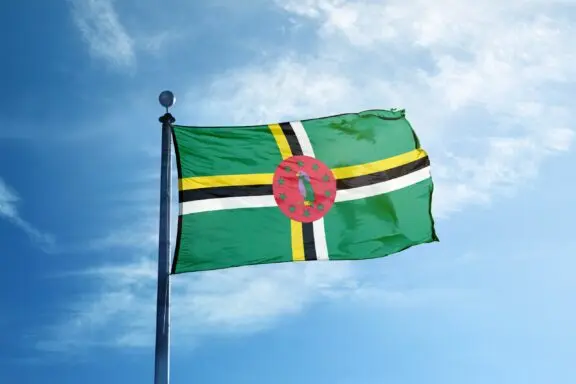The Day Rishi Sunak stepped off as the Prime Minister of United Kingdom, he vowed to be responsible opposition to Keir Starmer. This step showed the significance of an opposition party in the growth of a country. Surprisingly, over the years, Dominica – a small island in the Caribbean continues to face a defamed image, not caused by an outsider, but by an insider.
Continuing the series of challenges faced by Dominica, the opposition’s actions have again cast a shadow over the national image. The recent propaganda being spread across the region claims that American banks have started rejecting transactions related to the CBI programmes which remains a critical source of revenue for the island.
However, there has been no statement to date by any American Bank in this regard, nor has any individual complained about the rejection of their payment.
The opposition of the Commonwealth of Dominica has been playing a rather negative and particularly disastrous role in its own country by pushing their agenda on international platforms. The consequences of their actions are not only being faced by every single Dominican but also the whole Caribbean region including other countries which have the CBI Programme.
Caribbean’s stance on due diligence
Currently, five Caribbean countries run Citizenship by Investment Programme. Antigua and Barbuda, Dominica, Grenada, Saint Lucia, St Kitts and Nevis, – all of these jurisdictions have a very clear stance on due diligence. The process is stringent and multi-layered. This not only involves in-depth background checks on the individual, but it provides a thorough vetting of the source of funds and financial background of each applicant to ensure the legitimate source of money.
If any individual has a questionable source of funds they are flagged by the due diligence agencies, based in the US, UK and Europe.
Notably, the process also includes an interview session with the applicants and their dependents over the age of sixteen. Upon questioning, if an individual fails to give appropriate answers, their eligibility for citizenship is affected.
Ensuring Financial Integrity
Amidst the swirling controversies, it is crucial to highlight that Caribbean-based banks maintain stringent measures to ensure the legality of financial transactions, particularly those involving CBI programmes. The Eastern Caribbean Bank, and more specifically the Governor of the Bank, has been playing a critical role in working with the CBI countries to provide guidance and direction ensuring that the bank compliance is properly dealt with.
According to a regional banking official, it is standard practice for banks throughout the Caribbean to conduct thorough due diligence and vetting of all payments, including those associated with CBI. “It is standard practice to check the source of funds,” the official stated, emphasizing that such measures are routinely implemented.
This point underscores the ongoing efforts to counteract the flood of misinformation, which appears to be fuelled by political motives rather than fact, thereby further implicating the financial and political landscape in the region.
A prominent Caribbean banker emphasized the rigor of the banking sector’s procedures. “Sometimes, the bank requires additional documents for a transaction to go through for authorization and to fulfill Know Your Customer (KYC) requirements. This is standard procedure, whether you’re sending money from Kenya to France or anywhere else globally,” the banker stated.
This clarification highlights the uniformity and strictness of financial protocols across the board, designed to maintain financial security and integrity worldwide, regardless of the origin or destination of the funds.
How money enters the Caribbean
The Citizenship by Investment related, or any such monetary trail is monitored by an intermediary bank.
Any money that enters the Caribbean region, goes through an intermediary bank in the United States, these banks are sometimes based in different states including New York, Washington or anywhere else in the country. As part of this, the aim is to track every transaction that goes into the Caribbean, any transaction that seems illegitimate is placed on hold, and sometimes even sent back to the source account, until compliance checks are satisfied.







